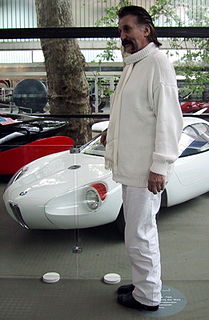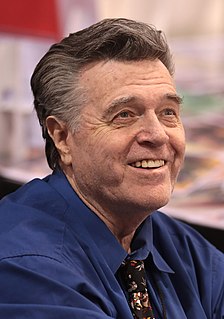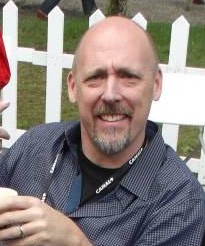A Quote by Joe Simon
When I and the other young artists were working in comics, our work carried with it a particularly American slant. After all, we were Americans drawing and writing about things that touched us. As it turned out, the early work was, you might say, a comic book version of Jazz.
Related Quotes
When I was a kid, back in the '40s, I was a voracious comic book reader. And at that time, there was a lot of patriotism in the comics. They were called things like 'All-American Comics' or 'Star-Spangled Comics' or things like that. I decided to do a logo that was a parody of those comics, with 'American' as the first word.
To me, my favorite comic book movies were the ones that were never based on comic books, like Unforgiven. That's more the kind of thing that get us inspired. Usually when you say something's a comic book movie, it means you turn on the purple and green lights. Suddenly that means it's more like a comic book, and It's not really like that.
Alfred Hitchcock talked about planning out his movies so meticulously that when he was actually shooting and editing, it was the most boring thing in the world. But drawing comics isn't like shooting a movie. You can shoot a movie in a few days and be done with it, but drawing a comic takes years and years... That's the biggest part of doing comics: You have to create stuff that makes you want to get out of bed every morning and get to work.
My clients were always poor folks, working folks, people who were in trouble and couldn't afford to pay a whole lot. I found it very difficult to say no to somebody who needed help, so most of my work turned out to be pro bono. It didn't start out that way, but it turned out that way because I never got paid.
They've lied about everything.-about the fence, and the existence of Invalids, about a million other things besides. They told us the raids were carried out for our own protection. They told us the regulators were only interested in keeping the peace. They told us love was a disease. They told us it would kill us in the end. For the very first time I realize, that this, too, maight also be a lie.
Underground comics were produced by individuals - they were the auteur variety, rather than the production-line sort of comic book aimed at pleasing a vast general audience. Mainstream comics never appealed to me: they seemed sterile in their stylistic consistency, and were quickly consumed, the stories interesting only for so long as you were reading them.
I wasn't sure what I wanted to do with my life. I always wanted to pursue either music or comics, so when the opportunity came from comics publisher Fantagraphics for my brothers Jaime and Mario and I to make a comic book together, we jumped at the chance: "Let's just do it and see what happens." Really, we weren't sure where we were going to go with it. We thought our work was good enough to be out there, but we didn't know that the response was going to be pretty good, pretty quick.
Amazingly, much of the best cartoon work was done early on in the medium's history. The early cartoonists, with no path before them, produced work of such sophistication, wit, and beauty that it increasingly seems to me that cartoon evolution is working backward. Comic strips are moving toward a primordial goo rather than away from it . . . Not only can comics be more than we're getting today. but the comics already have been more than we're getting today.
Everybody in Germany was for the -German cause. But then, after the war ended, when I heard the first Glenn Miller sound on the radio and these fantastic American music makers, I turned into a jazz fanatic. They called me Benny, after Benny Goodman. So, all of a sudden, the eyes of young Germans were opened to America - everything American was absolutely at the top of the list.
I think every filmmaker makes different choices. I remember in the early days, in some of the early comic book movies, certain white dissolves were used that would try to emulate the look and feel of comic book panel borders. Sometimes they would frame shots in panels or circles that gave it a real comic book feel.
Motion comics are a medium all their own. It is certainly not animation, in which a large number of artists do tens and even hundreds of thousands of drawings. The animation, or 'the reality,' is created in a computer, and the work of the original artist is the work. Nor is it a comic book. You can't turn the pages. You can't read the dialogue.

































